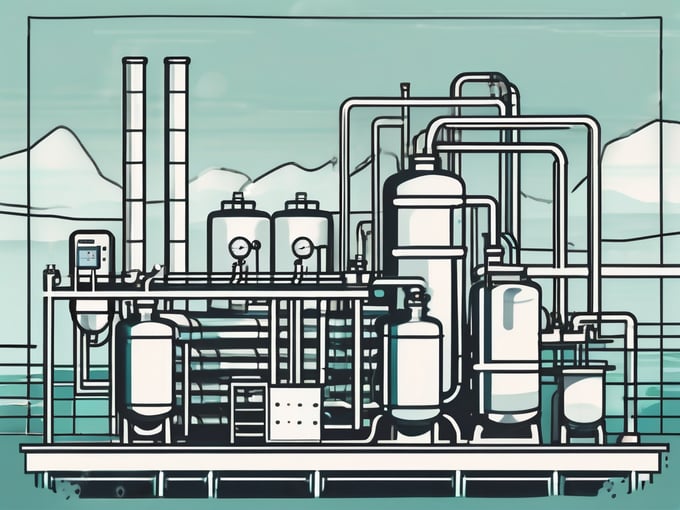Navigating the Department of Environmental Conservation can seem daunting, but understanding its role and services can make the process easier. This guide provides a comprehensive overview, from key functions and resources to accessing environmental regulations and applying for necessary permits and licenses. Learn how to report environmental concerns, utilize conservation programs, and engage with community outreach initiatives. The guide also includes essential contact information and tips for efficiently navigating the department’s website. Whether you’re seeking assistance or just exploring the department’s offerings, this step-by-step guide aims to simplify your experience and answer commonly asked questions.
xotools.xyz will take you through an extensive exploration of this topic.
1. Understanding the Role and Functions of the Department
The Department of Environmental Conservation plays a vital role in safeguarding natural resources and promoting sustainable practices. It is responsible for the management and regulation of environmental policies, ensuring the conservation of air, water, land, and wildlife. The department enforces laws that protect the environment, oversees the responsible use of natural resources, and implements programs to mitigate pollution and environmental degradation.
One of its key functions is to monitor and assess environmental quality, providing valuable data and reports to the public and policymakers. This information helps guide decisions that affect public health and the environment. The department also works to educate the public and industry stakeholders about environmental issues, promoting awareness and encouraging responsible behavior.
In addition, the department administers permits and licenses for activities that may impact the environment, such as construction projects, industrial operations, and resource extraction. By setting standards and guidelines, it ensures that these activities are conducted in a way that minimizes environmental harm. Overall, the Department of Environmental Conservation is a crucial agency in protecting the natural world and supporting sustainable development practices.
2. Key Services and Resources Provided
The Department of Environmental Conservation offers a wide range of services and resources designed to protect the environment and support individuals, businesses, and communities in their conservation efforts. One of the primary services provided is the issuance of permits and licenses for activities that could impact the environment, such as water usage, waste management, and land development. These permits ensure that activities comply with environmental regulations and standards, minimizing negative impacts.
The department also provides comprehensive environmental data and reports, which include air and water quality assessments, wildlife population studies, and climate change research. This information is valuable for researchers, policymakers, and the public, offering insights into the state of the environment and helping to inform conservation strategies.
In addition to regulatory functions, the department offers educational resources and outreach programs aimed at increasing public awareness about environmental issues. These programs include workshops, training sessions, and informational materials on topics like recycling, energy conservation, and sustainable practices.
The department also administers grants and funding opportunities for conservation projects, supporting initiatives that protect natural habitats, restore ecosystems, and promote renewable energy. By offering these services and resources, the Department of Environmental Conservation plays a crucial role in fostering a sustainable and healthy environment.
3. How to Access Environmental Regulations and Policies
Accessing environmental regulations and policies through the Department of Environmental Conservation is straightforward and essential for staying informed about legal requirements and standards. The department’s website is the primary portal for accessing these documents. It offers a comprehensive database of regulations covering various aspects of environmental protection, including air and water quality, waste management, wildlife conservation, and land use.
To find specific regulations or policies, users can utilize the website’s search function or navigate through categorized sections. The site often includes summaries and full-text versions of laws and policies, making it easy to understand the legal framework. Additionally, the department regularly updates these documents to reflect new laws and amendments, ensuring that users have access to the most current information.
For those needing more detailed explanations or interpretations, the website may also provide access to guidance documents, which clarify how specific regulations should be implemented. Public comments and hearing schedules are also available, allowing stakeholders to participate in the policy-making process.
For individuals or businesses requiring assistance in navigating these regulations, the department offers contact information for regulatory staff who can provide guidance and clarification. This access ensures that everyone can comply with environmental laws and contribute to conservation efforts.
4. Steps to Apply for Permits and Licenses
Applying for permits and licenses through the Department of Environmental Conservation involves several key steps to ensure compliance with environmental regulations. First, identify the specific permit or license required for your activity, such as construction, water use, or waste disposal. The department’s website provides detailed information on different types of permits and their requirements.
Next, gather the necessary documentation. This may include site plans, environmental impact assessments, and technical specifications. Ensure all required forms are completed accurately, as incomplete applications can lead to delays.
Once the application is prepared, submit it through the department’s online portal or by mail, depending on the specific permit. The online portal often allows for tracking the status of your application, providing updates throughout the review process.
After submission, the department will review the application for compliance with relevant environmental regulations. This process may include public hearings or consultations, where stakeholders can express concerns or support. If additional information or modifications are needed, the department will notify the applicant.
Finally, upon approval, the department issues the permit or license, often accompanied by conditions or requirements that must be adhered to. It’s essential to understand and comply with these conditions to maintain the validity of the permit.
5. Reporting Environmental Concerns and Violations
Reporting environmental concerns and violations is a crucial aspect of protecting natural resources and public health. If you observe any activities that may harm the environment, such as illegal dumping, water pollution, or unpermitted construction, it is important to report these incidents to the Department of Environmental Conservation.
To report a concern, you can use the department’s hotline, email, or online reporting form, which are all accessible through their website. When making a report, provide as much detail as possible, including the location, nature of the incident, and any relevant evidence like photos or videos. The department’s enforcement team will investigate the report, ensuring that any violations are addressed promptly.
Confidentiality is often maintained for those reporting violations, encouraging more individuals to come forward without fear of retaliation. By reporting concerns, you help uphold environmental standards and protect the community.
6. Utilizing Conservation Programs and Grants
The Department of Environmental Conservation offers various conservation programs and grants to support environmental preservation and sustainable practices. These programs provide financial assistance, technical support, and resources to individuals, businesses, and community organizations engaged in conservation efforts.
To utilize these opportunities, start by exploring the department’s website, where you’ll find a list of available programs and grants. Each listing includes detailed information about eligibility criteria, application procedures, and deadlines. Programs may focus on diverse areas such as habitat restoration, renewable energy projects, pollution reduction, and wildlife protection.
Applicants are encouraged to carefully review the requirements and gather the necessary documentation, such as project proposals, budget plans, and impact assessments. Submitting a complete and well-prepared application increases the chances of receiving funding or support.
Once awarded, grant recipients must adhere to reporting and monitoring requirements set by the department, ensuring transparency and accountability in the use of funds. The department may also offer workshops and training sessions to help participants effectively implement their projects.
By participating in these programs and grants, you can contribute to environmental conservation, promote sustainability, and benefit from the resources and expertise provided by the department.
7. Engaging with Community Outreach and Education Initiatives
Engaging with community outreach and education initiatives offered by the Department of Environmental Conservation is a valuable way to learn about environmental issues and contribute to local conservation efforts. The department organizes various events, workshops, and programs aimed at raising awareness and educating the public on topics such as recycling, energy conservation, and biodiversity.
To get involved, check the department’s website for a calendar of events and educational resources. These initiatives often include school programs, public lectures, volunteer opportunities, and hands-on activities like clean-up drives or tree planting. Participating in these events not only enhances your understanding of environmental issues but also fosters a sense of community and shared responsibility.
The department also collaborates with local organizations, schools, and businesses to expand the reach of its educational efforts. By partnering with these groups, they ensure that accurate and relevant information is disseminated widely, encouraging community members to adopt sustainable practices and engage in environmental stewardship.
8. Contact Information and How to Get Assistance
For any inquiries or assistance related to the Department of Environmental Conservation, you can utilize various contact methods to get the support you need. The department’s website provides a comprehensive list of contact information, including phone numbers, email addresses, and physical office locations.
For general inquiries or specific questions about permits, regulations, or policies, you can reach out through the main phone line or email. The website often features a directory of departmental divisions, allowing you to contact the appropriate office directly based on your needs, whether it’s for environmental compliance, grant applications, or community outreach.
If you need help navigating the department’s website or finding specific documents, the website typically includes a help section with FAQs and user guides. Additionally, the department may offer customer service representatives who can assist with technical issues or provide information on how to access various services.
For in-person assistance, visit one of the department’s regional offices. These offices can provide direct support and answer questions about local environmental issues and regulations. Always check the office hours and any required appointments before visiting.
9. Tips for Efficient Navigation of the Department’s Website
Navigating the Department of Environmental Conservation’s website efficiently can save you time and help you find the information you need quickly. Start by familiarizing yourself with the website’s layout and main sections, such as permits, regulations, and conservation programs. Use the search bar prominently displayed on the homepage to quickly locate specific documents, forms, or information related to your query.
The website often includes a menu with categorized sections, making it easier to navigate through topics like environmental policies, educational resources, and grant opportunities. Utilize these categories to drill down into more specific areas of interest.
Check for a “Resources” or “Documents” section, where you can access important forms, regulations, and guidelines. Many departments also provide quick links or shortcuts to frequently used services, so make use of these for quicker access.
If available, take advantage of the site’s interactive features, such as live chat or virtual assistants, to get immediate help with your questions. Bookmark frequently visited pages for easy access and regularly check for updates or announcements to stay informed about any changes in procedures or new offerings.
10. Commonly Asked Questions and Solutions
Commonly asked questions about the Department of Environmental Conservation often revolve around permits, regulations, and available resources. One frequent query is about how to determine the type of permit required for a specific activity. To address this, the department’s website provides a comprehensive guide and a list of permit types, helping users identify the correct application based on their needs.
Another common question concerns the status of an application. Users can track their permit or license application through the online portal, where status updates and additional requirements are posted.
For inquiries about environmental regulations, the website offers detailed explanations and access to relevant documents. Users can also contact the department directly via phone or email for specific regulatory questions.
Finally, many people ask about available conservation programs and grants. The department provides information on eligibility, application processes, and deadlines on its website, ensuring that users have access to the necessary resources for their conservation projects. For additional support, community outreach programs and educational workshops are also available.
Navigating the Department of Environmental Conservation can be straightforward with the right information and tools. By understanding its role, accessing key services, and utilizing available resources, you can effectively engage in environmental protection and conservation efforts. Whether applying for permits, reporting concerns, or participating in outreach programs, the department offers comprehensive support to help you contribute to a sustainable environment. Stay informed and involved to make a positive impact.
xotools.xyz
xotools.xyz








